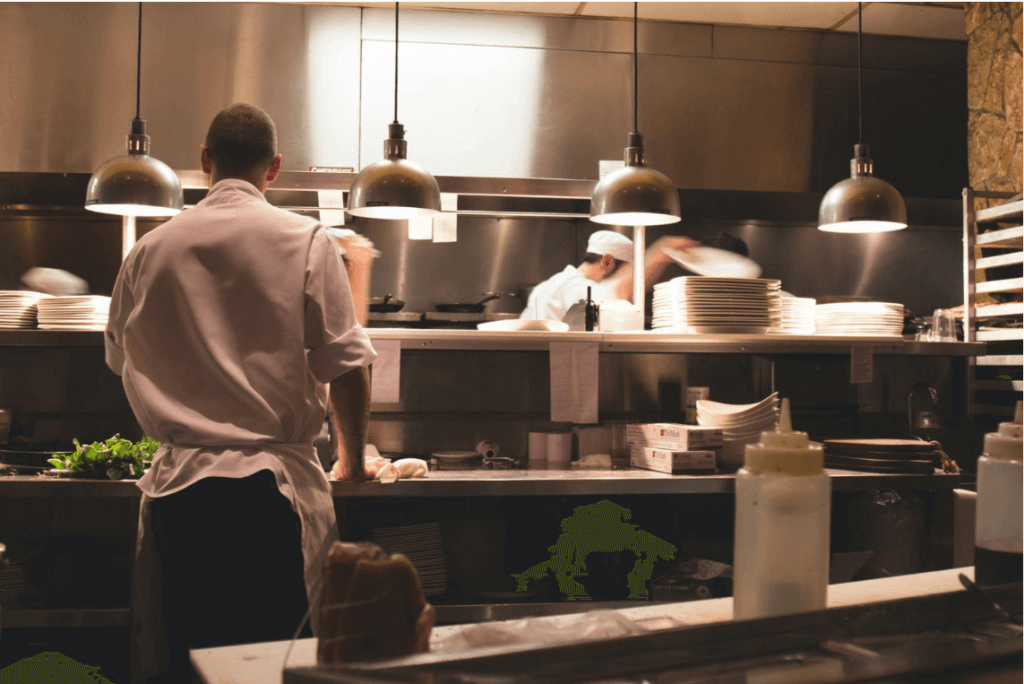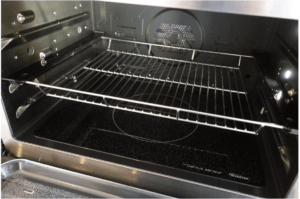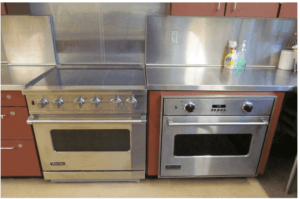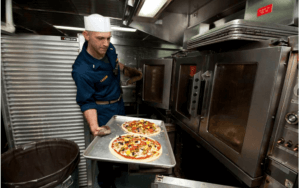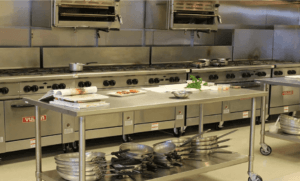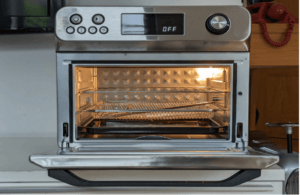In the fast-paced world of commercial cooking, the choice of oven can significantly influence both the quality of food and the efficiency of kitchen operations. Selecting the right oven involves understanding its impact on food preparation and operational flow, ensuring that every dish is a masterpiece of taste and texture. If you are looking at choosing the best ovens for commercial kitchens, a comprehensive guide like this provides an in-depth look at the various types of ovens used in commercial kitchens and offers practical advice on choosing the best one for your culinary needs.
Choosing the right oven for a commercial kitchen starts with understanding the different types available, each designed to meet specific cooking demands. Here’s a brief overview of common oven types:
- Convection Ovens: Ideal for baking and roasting, these ovens circulate hot air to cook food evenly.
- Combination Ovens: These versatile units can function as a convection oven or steamer to adapt to different cooking needs.
- Pizza Ovens: Specially designed for baking pizzas, these ovens are essential for pizza parlors and restaurants offering pizza on their menu.
- Conveyor Ovens: Best for continuous cooking requirements, these ovens move food through a heated chamber on a conveyor belt.
- Deck Ovens: These ovens have one or more separate baking chambers stacked on top of each other, perfect for bread and pastry.
What Are Convection Ovens?
Convection ovens stand out in commercial kitchens for their efficiency and versatility. By using fans to circulate hot air, these ovens ensure uniform temperature distribution, reducing cooking times and enhancing food flavor. They are particularly effective for evenly baked pastries and thoroughly roasted meats. Discover top-notch restaurant convection ovens from Kitchenall, a leading brand in the professional kitchen and restaurant equipment market.
What Are Combination Ovens?
Combination ovens represent the pinnacle of kitchen technology, combining the functions of a steamer and a convection oven. These ovens are capable of switching between different cooking modes, making them incredibly flexible for kitchens that need to prepare a wide variety of dishes.
Specialized Ovens for Specific Foods
Certain dishes require specific types of ovens to achieve the best results:
- Pizza Ovens: Designed to reach higher temperatures, pizza ovens are crucial for achieving a perfect crispy crust and evenly melted cheese.
- Bread Ovens: Often deck ovens, these are optimized for artisanal bread baking, providing steam options and precise temperature controls.
How to Choose the Best Oven for Your Commercial Kitchen?
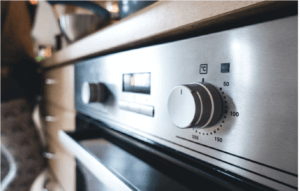
Selecting the right oven involves several considerations:
- Size and Capacity: Match the oven size to your kitchen’s output requirements. Consider the amount of food you need to cook during peak hours to determine the appropriate oven size.
- Type of Food: Different foods require different types of ovens. For instance, bakeries might prefer deck ovens, while a fast-food restaurant could benefit more from conveyor ovens.
- Kitchen Layout: Ensure the oven fits well within your kitchen’s layout without causing congestion.
What Size Oven Do I Need?
The size of the oven should correspond to both the physical space of the kitchen and the volume of food that needs to be cooked. It’s essential to balance space with capacity to avoid bottlenecks during service.
Which Oven Features Enhance Kitchen Efficiency?
Look for features that contribute to kitchen efficiency, such as:
- Energy Efficiency: Reduces operating costs.
- Cooking Speed: Increases throughput.
- Easy-to-Clean Designs: Simplifies maintenance and improves hygiene.
What Are the Advantages of Modern Commercial Ovens?
Modern commercial ovens come equipped with numerous benefits that can transform kitchen operations:
- Energy Efficiency: Advanced insulation and more efficient cooking methods reduce electricity usage.
- Enhanced Food Quality: Improved temperature control and cooking techniques boost the quality of the cooked food.
- User-Friendly Interfaces: Digital controls and programmable settings make it easier to train staff and ensure consistency.
- Versatility in Cooking: Ability to handle multiple cooking methods with one appliance.
How Do Different Ovens Impact Food Taste and Texture?
The type of oven used can significantly affect the flavor and texture of the food:
Why Choose a Convection Oven for Baking?
Convection ovens are excellent for baking as they provide even heat distribution, resulting in uniform texture and coloration of baked goods.
The Best Ovens for Crispy Pizzas
For pizza, ovens that can achieve high temperatures, such as brick ovens or specialized pizza ovens, are preferred to ensure a crispy base and perfectly cooked toppings.
Step-by-Step Guide to Installing a Commercial Oven
Proper installation is crucial for safety and efficiency. Key steps include:
- Selecting the Right Location: Ensures optimal kitchen flow and accessibility.
- Electrical and Plumbing Requirements: Must be met according to local codes and the oven’s specifications.
- Ensuring Adequate Ventilation: Critical for safety and compliance with health regulations.
What Are the Electrical and Plumbing Considerations?
Depending on the type of oven, additional electrical and plumbing infrastructure may be necessary. This might include upgraded power supplies or water lines for steam ovens.
How to Ensure Proper Ventilation with Commercial Ovens?
Effective ventilation systems are essential to remove excess heat and maintain air quality. This involves the professional installation of commercial-grade vent hoods and exhaust systems.
Maintenance Tips for Commercial Ovens
Regular maintenance ensures longevity and consistent performance. Important tips include:
- Daily Cleaning: Keeps the oven in optimal working condition.
- Troubleshooting Common Issues: Helps quickly address and resolve operational problems.
- Long-Term Care and Servicing: Scheduled maintenance can prevent breakdowns and costly repairs.
How Often Should Commercial Ovens Be Serviced?
It is recommended to have commercial ovens serviced at least bi-annually to ensure they remain in good working order and to prevent unexpected failures.
Case Studies: The Best Ovens in Action
Examples from real-life kitchens illustrate how the right oven choice enhances operational efficiency and food quality. For instance, a high-volume bakery might use a fleet of rack ovens to meet its massive demand for fresh bread.
What Are the Newest Technologies in Commercial Ovens?
Innovations in oven technology continue to evolve, including:
- IoT Integration: Allows for remote monitoring and control.
- Automated Cooking Systems: Improve consistency and reduce labor costs.
FAQs on Commercial Ovens
What Are the Costs Involved with Commercial Ovens?
Costs can vary widely based on the type of oven, with standard models starting at a few thousand dollars to customized solutions costing much more.
Conclusion
Choosing the best ovens for commercial kitchens, a comprehensive guide like this helps make a critical decision that affects many aspects of your business, from food quality to operational efficiency. By understanding the different types of ovens available and considering your specific needs, you can select an oven that not only meets but exceeds your culinary requirements.

